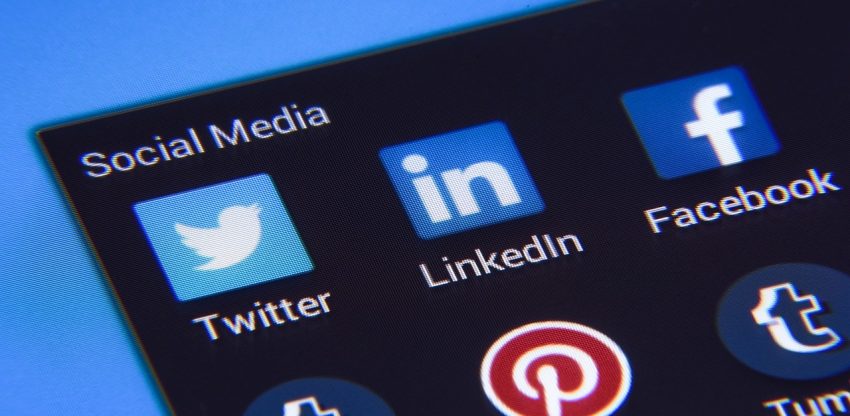Climate alarmists’ response when the facts don’t fit the narrative they’ve been pushing for two decades is to suppress the facts by killing the messengers. Today you kill bearers of inconvenient truths not with an ax to the back of the neck but by de-platforming them.
Climate alarmists are the true science deniers, promoting model projections over data, cherry-picking data used to support model projections, “adjusting,” data to fit the narrative, and when data can’t be adjusted or cherry-picked, just ignoring it entirely. Each of these types of actions violates the scientific method, and indeed undermines the scientific quest for knowledge. But then, of course, political power, not truth is what they are really after.
Big Social Media Censors Climate Discussion
The largest social media companies are owned by a very few companies or individuals. Facebook/Meta, Instagram, What’s App, Linked In, Twitter, Youtube, and TikTok are owned or controlled by less than half a dozen individuals (with the latter suspected of largely being controlled by the Chinese Communist Party).
These private companies have become the de facto public square for discussion. They act as oligopolists/monopolists; when competitors arise they quickly gobble them up.
Sadly, large social media oligopolists have been only too willing to jump on the climate alarm bandwagon. Using select alarmist organizations (such as “Climate Feedback”) as “fact checkers,” social media’s climate censors start by throttling or labelling posts with which they disagree, limiting others’ ability to share unredacted posts on Facebook, Twitter, and other social media platforms.
If that fails to dissuade the climate realists from posting evidence-based claims pointing to an unalarming climate future, the social media giants remove the realists’ ability to monetize their online activities (that is, include ads on their sites). If these first two attempts at censorship fail to force the realists to toe the party line or at least self-edit their climate posts, Big Tech applies the death penalty: The corporate censors ban them, first temporarily, then, if they repeat the offense of telling the truth, for life from one or all the major online social media platforms.
It’s bad enough when big tech, with the help or encouragement of the federal government, censors political or social views its thought police consider offensive or socially unacceptable. It’s even worse for society when these multinational giants impose sanctions on people for speaking or pointing out truths—matters of fact—because they undermine or question claims made by purported or self-appointed experts on matters that are far from “settled science.” Knowledge is advanced only when there is free debate over contested factual claims.
Facts Prove to Be No Defense Against Censorship
The cases of Gregory Wrightstone and multi-award-winning physicist Richard Lindzen are instructive on this point.
Gregory Wrightstone
Wrightstone, executive director of the CO2 Coalition, is a geologist with a best-selling climate science book to his credit.
In Wrightstone’s case, as detailed in posts on the CO2 Coalition blog and various news articles, he and other scientists associated with the CO2 Coalition have been permanently banned from LinkedIn; had their posts throttled, censored, or banned by Facebook; and when he applied to open an Instagram account for the CO2 Coalition, he was prevented from doing so.

Wrightstone was permanently banned from LinkedIn for posting graphics concerning historic carbon dioxide concentrations from U.S. government and IPCC documents. The graphics showed that CO2 levels had been higher in the past than at present and that plants and animals thrived. LinkedIn treated Wrightstone’s factual post as an Orwellian thought crime, informing him that his posts were “false” and “not allowed,” and that because of repeated violations of similar types, his account was permanently suspended.
A similar thing happened with Facebook. In a series of posts Wrightstone discussed, among other things, that higher CO2 levels were contributing to a general greening of the Earth, that various types of extreme weather events were not becoming more frequent or severe, and that deaths due to extreme weather events had fallen dramatically over the past century. These are all documented facts. Yet Facebook’s “fact checkers,” an activist non-profit group calling itself Science Feedback (and closely connected to Climate Feedback) labeled them as “false,” and/or “misleading,” ultimately removing the posts. Despite Wrightstone providing thorough peer-reviewed documentation refuting each of the “fact-checkers”’ alleged claims, Facebook refused to rescind its label or to cease throttling CO2 Science’s ability to share its material.
Wrightstone’s experience with Instagram was even more telling—indicating as it does the collaboration between intermingled social media giants. When he attempted to establish an Instagram account for the CO2 Coalition, after reviewing his submission Instagram wrote, “Error: Your account has been disabled for violating our terms. . . [by] artificially collecting likes, followers or shares, posting repetitive content or repeatedly contacting people for commercial purposes without their consent.”
How is it possible to be in violation of Instagram’s terms and conditions, or artificially collect likes or post repetitive content, when one doesn’t even have an account? How does one’s account violate terms when the account has yet to be established? This is a form of “prior restraint” the U.S. Supreme Court has struck down in the past when plays and publications were banned before performance or sale by local governments. Social media giants play by a different set of rules.
Richard Lindzen

Richard Lindzen, a member of the National Academy of Sciences (NAS) and a fellow of the American Association of the Advancement of Science, is one of the most widely published climate scientists in the world. He was chosen by the NAS to co-author two climate science reports for them. In addition, he served as a contributing author to two assessment reports issued by the Intergovernmental Panel on Climate Change (IPCC). I mention these facts to show that when it comes to climate science, even the climate science community acknowledges Lindzen knows his business.
When the CO2 Coalition posted an interview the Daily Sceptic conducted with Lindzen on its Facebook page, Facebook censors quickly removed it, labelling Lindzen’s statements as incorrect. The article discussed a recent paper by Lindzen written for the Global Warming Policy Foundation. In it, Lindzen expresses his opinion based on his years of research that climate change is not a catastrophe, and points to research contained in the IPCC’s own reports that undercut claims of runaway warming from carbon dioxide. The CO2 Coalition is challenging Facebook’s ban, citing peer-reviewed research, but so far it still stands. Evidently Facebook believes its censors understand the state of climate science better than either Lindzen or the IPCC.
When social media giants “can’t handle the truth,” about climate change they prevent experts and average-Joes alike from speaking in the modern public square.
And what should be done about it? That will be found in tomorrow’s post.
Image by Photo Mix from Pixabay.


Sterling,
Good start and I look forward to your conclusion.
Thank you for this article. It is vitally important that these facts be publicized as widely as possible and that the offending social media sites be publicly shamed into changing their blatant censorship of the legitimate scientific debate over climate change.
Hi
A good example of the censorship is the NASA Satellite program to determine the transmissivity of the Atmosphere to the Earth’s radiation, which is in the Infra-red range.
The work was done in 1991 and 1992.
Someone in NASA, presumably one of the Zealots, hid the results by putting them into 2 unmentioned Appendices of a rather hum drum paper. It could not be accessed by an search engine, which was the point.
The results showed that the atmosphere completely absorbed all of the earthly radiation in the 14-16 micron range. This is the only range where CO2 can significantly absorb the earth’s radiation.
Thus destroying the basis of the whole green power story.
I was convinced that the data existed. After 2 futile years, I found the Data. It can be accessed at ‘NASA Technical Memorandum 103957’, and then you plow through almost 100 pages of dull until you find Appendices E and F, which take up 90 pages.
This was a newsworthy find,but I could not get a newspaper, journal, Scientific magazine to publish it. Whether as a scientific paper, and OP-ED, or even a letter to the editor. So I expanded it to meet the definition of a book and put it on Amazon as “Carbon Dioxide-Not Guilty”. 99cents, or free if you email my at bobhiseyatcomcast.net. I also published a book of the data itself, also on amazon at 99 cents, so it would be easily found.
A handier form of the data exists in the NASA Gemini infra-red Astronomy program. It was on their web site for a while, but since withdrawn. It is included in both of my little booklets.
The Gemini site is another example of suppression of information. The data was given to them with strings. In their papers, they could only refer to it as “Lord 1992”, a pretty useless reference. Also, none of their work could in any way be construed as commenting on “Climatology”. One paper even stated this!
So it is not just the social media that is suppressing information, but also ALL of the media.
I have no dog in this fight, just a dedication to truthful science. I am a stem PHD.
Keep up the good work; Richard Lindzen is a credit to science.
Yes, Facebook/Meta, Instagram, What’s App, Linked In, Twitter, Youtube, and TikTok are all suppressing the truth about numerous issues but there are many other social media platforms that allow the truth. Telegram, Retalk, Signal and Gettr are just four of these. Get off the major platforms and watch their share prices drop.
With Elon Musk taking over Twitter and opening it up for freer discussion, it will be interesting to see how FaceBook/Meta, Instagram, Linked-in and other “fact-checkers” handle the competition and challenges to their censorship policies.